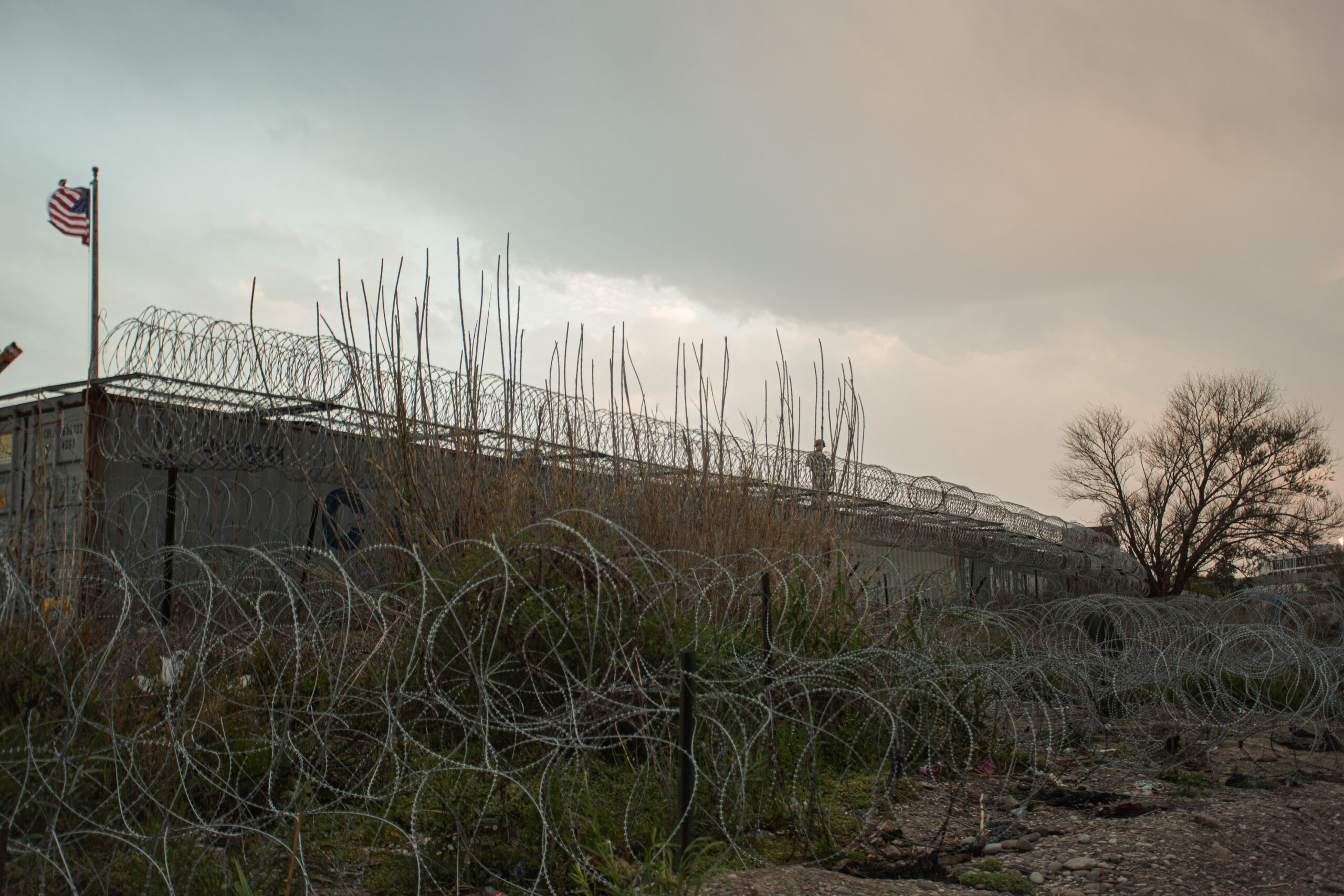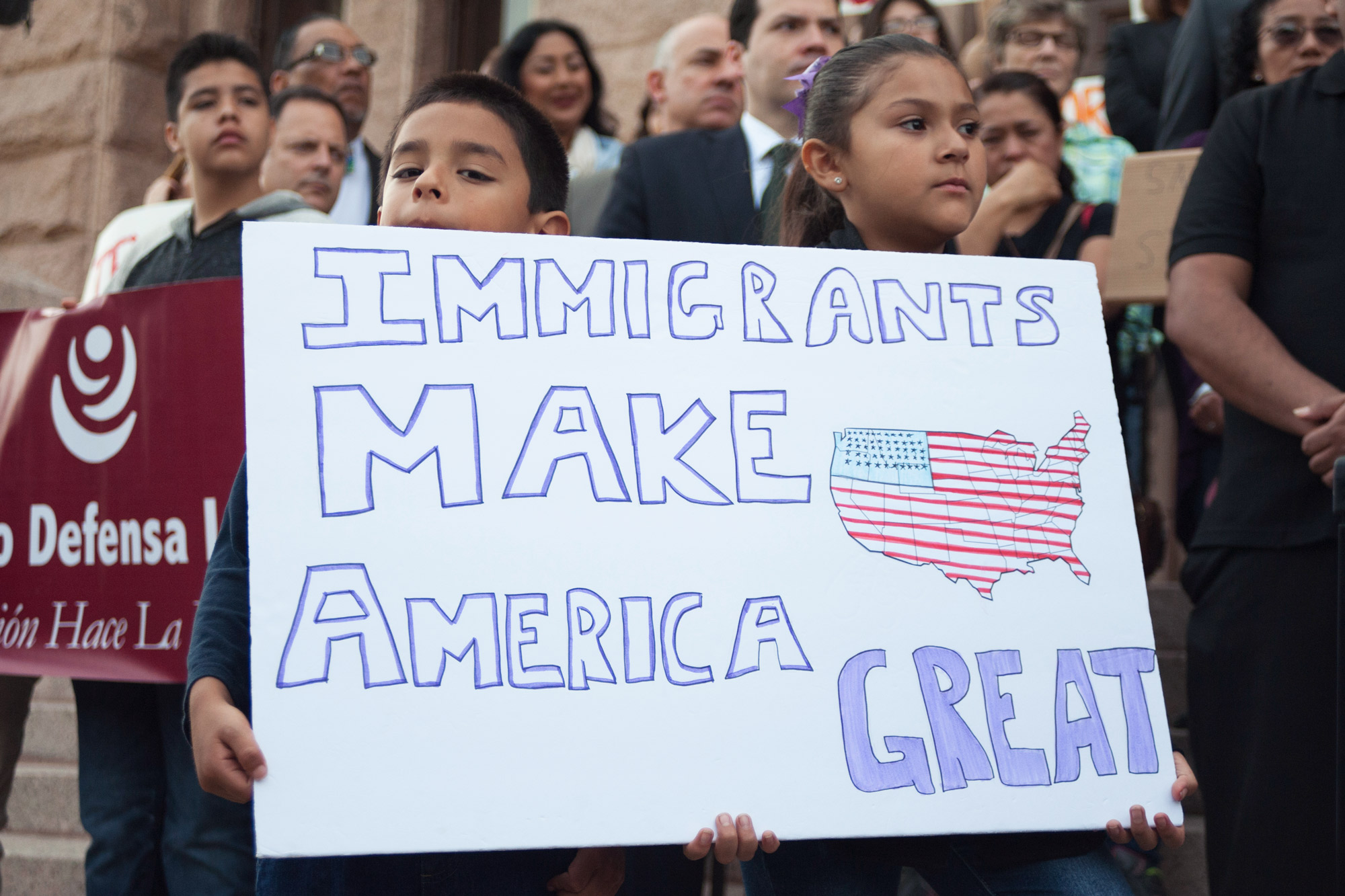In Texas and across the country, immigrants and their advocates are now bracing for a second Donald Trump term, which the president-elect has promised would include the nation’s “largest deportation in the history of our country.”
Should that plan be fully carried out, experts have explained, the Texas economy and Texas families could face devastation. And the Lone Star State would also likely serve as a logistics hub for Trump’s Eisenhower-esque scheme.
“Texas is definitely going to be on the front lines of a mass deportation operation,” Daniel Hatoum, a senior supervising attorney at the Texas Civil Rights Project, told the Texas Observer.
Texas’ 1,254 miles of border make up the majority of the U.S.-Mexico divide—and Governor Greg Abbott supports Trump’s mass deportation plan, even as his state’s economy has thrived on the back of undocumented labor. Texas is also already home to much of the nation’s immigrant detention capacity.

Border communities are bracing themselves as well. In the militarized city of Eagle Pass, activists with the Border Vigil, a group that gathers along the banks of the Rio Grande every month to mourn fallen and drowned migrants are “deeply saddened” by Trump’s win.
“The party that claims to value law and order has chosen a felon. They profess to care about the lives of children; we urge them to extend that care to all children, regardless of their nationality,” Border Vigil organizer Amerika Garcia Grewal told the Observer. “As global migration increases, we are witnessing the beginning of an unprecedented movement of people. This moment calls for compassion and meaningful immigration reform that prioritizes saving lives. The future of humanity depends on our response.”
Democratic Congressman Greg Casar told the Observer that now is a moment to come together to protect immigrants, and the Lone Star State is “battle tested” for that: During Trump’s first term, Casar was on Austin City Council, and he mobilized with others to raise deportation defense funds. This time, he said, advocates are more prepared.
“We’re going to defend our immigrant communities from Trump’s attacks, while we hold Trump and people like Elon Musk accountable for spreading lies and scapegoating immigrants,” Casar said. “We know that Texan struggles are actually the fault of billionaires and the politicians that serve them—like Trump.”

Guerline Jozef, the founder and executive director of the Haitian Bridge Alliance in California, said her organization is looking into legal avenues to protect all immigrants against deportation. “Haitian immigrants, the Haitian community, continues to carry the brunt of the system and continues to be the first line of defense for all other immigrant communities,” Jozef said.
During this election season, right-wing activists and politicians have attacked Haitian immigrants. On the campaign trail, Vice President-elect JD Vance falsely accused Haitians in Ohio—without any evidence—of eating pets, a claim Trump then echoed.
In addition to Trump’s promise of unprecedented deportations, activists are bracing for more extreme policies that threaten the country’s legacy of immigration entirely. For protectors of immigrant rights, the next four years are about far more than just defending people at risk of deportation.
Many people believe that Trump’s anti-immigrant tirades have been more bluster than serious plans, said Aaron Reichlin-Melnick, senior fellow at the American Immigration Council, but the appointees he is likely to pick in January are prepared to enact the extreme policies the president-elect campaigned on.
“We are under no illusions that the policies in Project 2025, which includes slashing legal immigration, rounding up immigrants, creating new detention camps, are all on the table. That is not to say that all of them can be carried out or will be carried out, but we know what the options of policies out there look like,” Reichlin-Melnick said.

Advocates are also preparing for other challenges they’ve seen before: an attempt to end existing legal pathways to citizenship and legal residency, including Deferred Action for Childhood Arrivals (DACA) and Temporary Protected Status (TPS).
TPS, founded in 1990, has provided US legal status and protections to immigrants hailing from specifically designated countries including Haiti, Honduras, and Venezuela, where residents face armed conflict and violent political instability, among other tragedies. More than 1.5 million people in the United States have some form of temporary legal status, Reichlin-Melnick said, and they may see that status taken away under the incoming Trump administration.
“We also are getting ready to protect and defend the idea of immigration entirely,” said Reichlin-Melnick. “We are still a nation of immigrants.”







